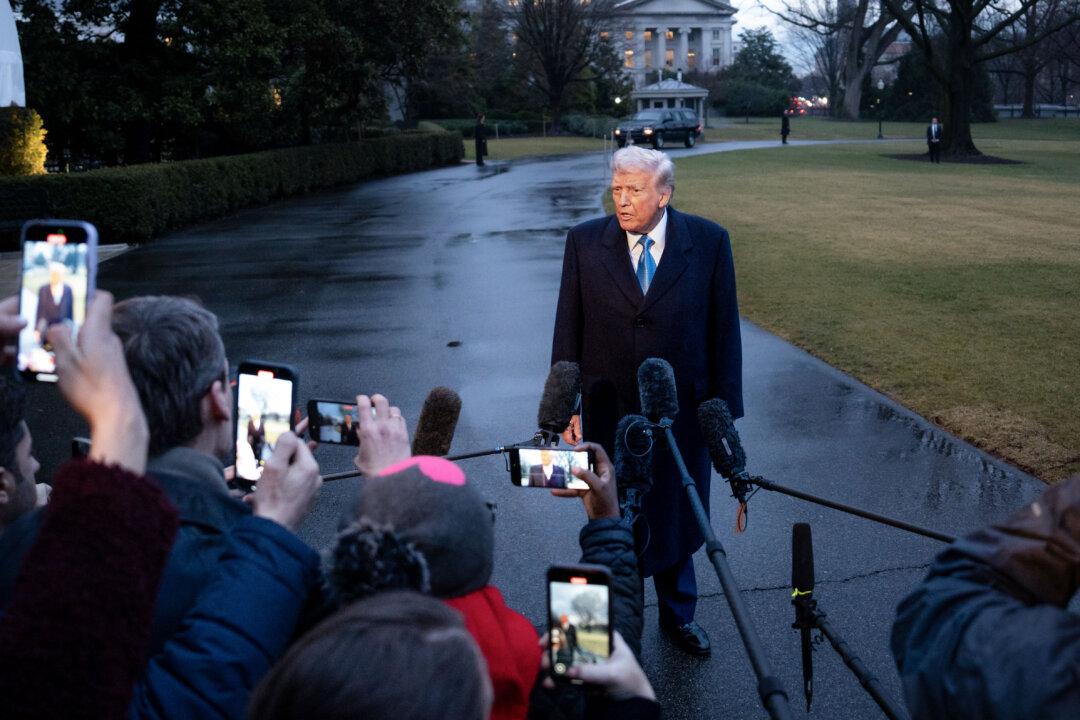U.S. President Donald Trump said he spoke to Prime Minister Justin Trudeau on the morning of Feb. 3 and called for U.S. banks to have more access to the Canadian market.
In a post on his platform Truth Social around 9 a.m., Trump said he “just spoke” to Trudeau and that the two would speak later that day at 3 p.m.





